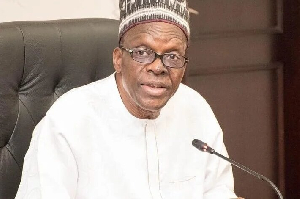Essentially, two categories of teachers are employed in the Ghana Education Service. These are; teachers who are only academically qualified (non-professionals) and those that are professionally qualified (professionals) to carry out instruction in the classroom.
Non-professional teachers (academically qualified) are those who have academic training without professional teacher training as a result of enrollment into non-education tertiary institutions to obtain qualifications that can enable them gain other employment and not specifically teaching. While professionally qualified teachers are teachers who get professional teacher training from educational institutions that gives them professional knowledge and skills to be employed in the education sector for teaching.
However, non-professional does not mean unprofessional and being called professional does not mean one would automatically act professionally in the line of duty. Nothing separates the two when it comes to how they are expected to perform their duties as teachers. Both professionals and non-professionals are expected to deliver at their highest competencies and both are required to meet all professional standards in teaching and learning.
In essence, the difference between the two goes only as far as the institution one attended and the name on the certificate awarded. Some non-professionals are very good at lesson delivery as there are professionals who are poor in their delivery and vice versa.
Both are required to prepare a scheme of work, write lesson notes, give and mark exercises, participate in co-curricular activities, supervise and ensure student discipline among others.
Any other responsibility one may take comes with its associated responsibility allowance.
The Teachers' Professional Development Allowance
The government through the Minister of Education, Dr Matthew Opoku Prempeh, announced in August the introduction of a Teachers continuous Professional Development Allowance to deepen teachers’ commitment and spur professional growth. This was in part necessitated by the signing of the teachers' condition of service and the introduction of the teachers' license and its subsequent renewals. Teachers would have to attend seminars and workshops to build points which would be necessary to renew their license.
A Professional Development Allowance is a refund of an expenditure or payment of financial assistance to an employee who has been employed in the professional stream for the specified qualifying period, to offset professional development cost.
Professional development is to help teachers in improving their knowledge and skills and applying the same to facilitate individual, school-wide improvements in the bid to increase learners’ achievement.
The allowance will also motivate teachers as they take part in courses that will develop their professional competencies. It is also to help pay the cost involved in attending workshops organised by the NTC (continuous professionalism development providers) and district education offices.
Unfair discrimination against non-professional teachers
Based on the above explanation, it can be agreed by any fair-minded person that every teacher regardless of the type of certificate, needs to continually develop him/herself to be relevant in the education field and contribute effectively towards learners achievement.
Unfortunately, there was inequity in how the categories of teachers (non-professional and professional) were paid the teachers continuous professional development allowance. Whereas GH¢1,200 was paid to professional teachers, only GH¢800 was given to non-professional teachers.
Is this discrimination justified?
The reason for the allowance as stated earlier is to offset professional development cost and help teachers in improving their knowledge and skills and applying the same to facilitate individual and school-wide improvements in the bid to increase learners’ achievement.
Is the government saying non-professional teachers don’t need to develop themselves, attend workshops and seminars like professional teachers?
In any case, professional teachers already receive higher salaries than non-professional teachers who are on the same scale because of their training.
They also enjoy responsibility allowances which non-professionals do not get for carrying out the same responsibilities, so why should this difference be brought to the payment of an allowance for a specific purpose? These continuous discriminations can demotivate non-professional teachers in the performance of their duties.
Why should there be a disparity in the payment of allowances just because of differences in certificate or institution one attended? Are professional teachers doing anything different that non-professional teachers are not doing in our schools that make them deserve less of an allowance?
Unfortunately, teacher unions who deduct non-professionals the same monthly dues as professionals would sit in a meeting and agree that non-professional teachers need to develop themselves less than professionals and hence they have to be paid less of a Professional Development Allowance.
The government and the teacher unions should as a matter of urgency reconsider this unjust discrimination against non-professional teachers and amend it so it doesn’t happen again when the allowance is paid next year.
Or maybe there is now the need for the teeming number of non-professional teachers to form their union so they can negotiate for their interest when it comes to these issues.
Click to view details



Opinions of Monday, 30 November 2020
Columnist: Solomon Nana Kwame Ansong



















